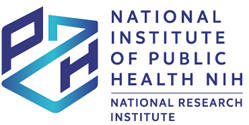ABSTRACT
Background. Some of the major human health problems being confronted in the 21st century are cardiovascular disease, diabetes and obesity. It is recognised that having proper dietary habits (nutritional behaviour) and taking moderate physical exercise seem to be the best methods for reducing the risk of cardiovascular disease.
Objectives. To assess whether the dietary habits and levels of physical activity in first year medical students (freshers) are suitable for preventing cardiovascular disease.
Material and methods. Subjects surveyed were Polish freshers studying medicine, physiotherapy, nursing and midwifery at the Medical University of Silesia in Katowice situated in South Western Poland (n = 239, mean age 19.82 ± 1.2 years). Assessments, by questionnaire, included daily food intake, frequency of consuming foodstuffs with an adequate nutritional value and evaluating adverse dietary habits. Also considered were students’ health, types of physical activity undertaken, or if not, then awareness of the consequences so arising. Statistical analysis was performed by the Chi2 test.
Results. These showed that 25% of students did not eat breakfast, 45.6% snacked in between main meals and 25% ate just before bedtime. Only 29% ate fruit and vegetables daily and 12% never had fish. Energy drinks were consumed by 39% of students daily and also 40% daily drank sweetened beverages. Furthermore, 40% of all subjects rated themselves as physically active, among which the highest were physiotherapy students at 70%. Regular physical activity was not considered essential to health by 5% subjects and 22% of nursing students believed that a lack of exercise, despite eating a healthy diet, did not affect health. The main reasons cited for not performing physical exercise were a lack of time (60%) and energy (26%).
Conclusions. Despite being aware of the importance that a proper diet and adequate levels of physical activity confers on health, the students of medicine and related disciplines, nevertheless, did not implement theory into practice.
STRESZCZENIE
Wprowadzenie. Choroby układu krążenia, cukrzyca oraz otyłość są istotnymi problemami zdrowotnym XXI wieku. Prawidłowe nawyki żywieniowe oraz umiarkowany wysiłek fizyczny uznano za najlepszy sposób redukowania ryzyka chorób sercowo-naczyniowych.
Cel badań. Celem badań była ocena zachowań żywieniowych i podejmowania aktywności fizycznej przez studentów pierwszego roku studiów medycznych, w aspekcie profilaktyki chorób układu sercowo-naczyniowego.
Materiał i metody. Badania ankietowe przeprowadzono na grupie studentów pierwszego roku studiów, kierunków: lekarskiego, fizjoterapii, pielęgniarstwa i położnictwa Śląskiego Uniwersytetu Medycznego w Katowicach (n = 239, średnia wieku 19,82 ± 1,2 lata). Oceniano ilość spożywanych posiłków, częstość spożywania produktów zalecanych w racjonalnym żywieniu i nawyki żywieniowe. Uwzględniono subiektywną ocenę stanu zdrowia studenta, rodzaj podejmowanej aktywności fizycznej i znajomość konsekwencji jej braku. Istotność statystyczną różnic pomiędzy grupami oceniano za pomocą testu Chi2.
Wyniki. Analiza wykazała, że 25% studentów uczestniczących w badaniach nie spożywa pierwszego śniadania, 45,6% pojada między posiłkami, 25% spożywa bezpośrednio przed snem. Zaledwie 29% studentów spożywa codziennie owoce i warzywa, natomiast 12% nigdy nie jada ryb. 39% badanych studentów codziennie pije napoje typu energy-drink, a 40% napoje słodzone. 40% studentów kierunków: lekarskiego, pielęgniarstwa i położnictwa ocenia siebie jako osoby aktywne fizycznie, a wśród studentów fizjoterapii odsetek ten wyniósł 70%. 5% studentów uważało, że regularna aktywność fizyczna nie jest konieczna dla utrzymania prawidłowego stanu zdrowia, 22% studentek pielęgniarstwa uważa, że brak ruchu, nie wpływa na stan zdrowia człowieka. Jako przyczynę niepodejmowania aktywności fizycznej 60% badanych wskazywało na brak czasu i 26% na brak sił.
Wnioski. Badania wykazały, że młodzież w wieku 19-20 lat studiująca na kierunkach medycznych, świadoma znaczenia dla zdrowia prawidłowego odżywiania i aktywności fizycznej, nie stosowała tego w praktyce codziennego życia.
Możesz zmienić ustawienia cookies w swojej przeglądarce. Ograniczenie stosowania plików cookies w konfiguracji przeglądarki może wpłynąć na niektóre funkcjonalności dostępne na stronie.



